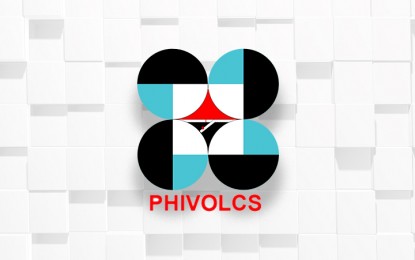
MANILA – Eight cities recently inked a memorandum of agreement (MOA) with the Philippine Institute of Volcanology and Seismology (Phivolcs) for the GeoRiskPH -- an initiative that aims to be the country’s central source of information for accurate and efficient hazards and risk assessment.
In a Viber message on Tuesday, Department of Science and Technology (DOST) Secretary Fortunato de la Peña said local chief executives from eight cities signed a MOA with Phivolcs last March 30. They are from Luzon (Batangas City, Legazpi City, Puerto Princesa City), Visayas (Iloilo City, Tagbilaran City) and Mindanao (Cagayan De Oro City, General Santos City and Zamboanga City).
"(They) committed to actively work with Phivolcs in contributing, managing and using information and technologies developed by GeoRiskPH for hazard and risk assessments, which are useful for physical planning and evidence-based policy making," he said.
De la Peña added that the collaboration is a long-term commitment between these cities and the Phivolcs to work together in compliance with the 39th Cabinet directive, issued on July 1, 2019, for the government to use GeoRiskPH in the conduct of hazard and risk assessment and to ensure the sustainability of the efforts.
"Beyond the Cabinet directive, through the MOA, the parties agreed to sustain research and development that may arise from the development of data standards and platforms. Establishment of this long-term collaboration is a milestone for Phivolcs, the LGUs and the USAID-Strengthening Urban Resilience for Growth with Equity (SURGE), which facilitated the MOA signing," he continued.
The DOST chief noted that partnership with these key cities would help Phivolcs to strategically influence more municipalities to build safe and resilient communities from earthquakes, volcanic eruptions and other hazards through the use of science-based information and user-friendly platforms.
He also commented that this collaboration would help the LGUs to reduce the risk of their constituents from the effects of natural hazards through mainstreaming disaster risk reduction and climate change adaptations in their development plans.
In the coming months, Phivolcs will be training the LGUs on the use of the GeoRiskPH platforms such as HazardHunterPH, GeoAnalyticsPH and GeoMapperPH, and their possible application in mainstreaming information in relevant disaster risk reduction (DRR) plans.
"With the help of the USAID-SURGE Project, the LGUs will be assisted in formulating DRR-integrated business continuity and recovery plans related to water management," he said. (PNA)
